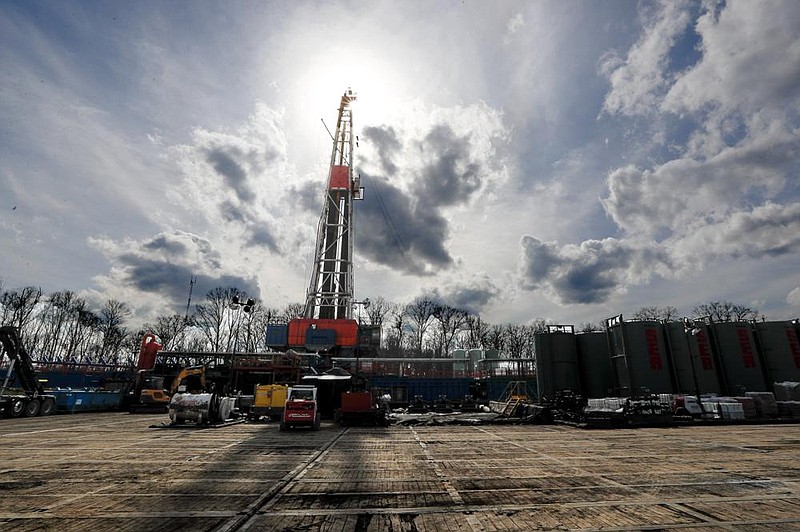The Trump administration's withdrawal of curbs on methane emissions from oil wells and related equipment threatens to disadvantage U.S. energy producers touting natural gas as a green alternative to coal.
The final rules, unveiled Thursday by Environmental Protection Agency Administrator Andrew Wheeler in Pittsburgh, stands to provoke a backlash in Europe, where regulators are developing a methane strategy and looking at tougher scrutiny of the carbon footprint of energy imports.
"For EPA to eliminate methane regulation makes a commercially risky situation even worse for U.S. producers and exporters," said Ben Ratner, a senior director with the Environmental Defense Fund. "With the [European Union] primed to tighten the screws on leaky gas, the Trump EPA's methane rollbacks aren't just bad climate policy, they're bad geopolitics and a competitive disadvantage for U.S. gas."
The final measures end methane-specific limits at new oil and gas wells while removing additional curbs on leaks of smog-causing volatile organic compounds from gas transmission and storage equipment.
Environmentalists who've vowed to challenge the rules in court said the administration was making a dangerous move to unleash a powerful greenhouse gas despite a narrow window of time to avert the most catastrophic consequences of climate change.
"The Trump EPA is giving the oil and gas industry a green light to keep leaking enormous amounts of climate pollution into the air," said David Doniger, senior strategic director of climate and clean energy at the Natural Resources Defense Council. "We cannot protect the health of our children and grandchildren, especially in the most polluted and endangered communities, if EPA lets this industry off scot-free."
Methane, the chief component of natural gas, is a valuable energy source and commodity in its own right. Yet it's also a powerful heat-trapping pollutant that can exacerbate climate change when it escapes from oil wells or gas pipelines. It represents about a tenth of U.S. greenhouse gas emissions, and is estimated to be 84 times more powerful than carbon dioxide at warming the atmosphere over a 20-year period.
The EPA is largely retaining regulations aimed at curtailing releases of volatile organic compounds from new and modified oil and gas wells. The agency and some industry advocates say that those curbs effectively capture methane, too, rendering specific requirements on the greenhouse gas unnecessary.
"EPA's commitment to following the Clean Air Act protects health and the environment, effectively regulates emissions from our industry, and allows for the responsible production of oil and gas," said Anne Bradbury, chief executive of the American Exploration and Production Council.
The oil industry is fractured over the Trump administration maneuver, which was opposed by large, integrated energy companies such as Royal Dutch Shell and BP that have highlighted sustainability goals and voluntarily adopted methane-reduction targets.
Direct methane regulation is necessary to protect the industry's license to operate, BP argued in an opinion piece last year.
"When used in electricity generation, natural gas has less than half the carbon dioxide emissions of coal, and it also can be a vital backup to renewables," former BP America President Susan Dio wrote. "But to maximize the climate benefits of gas -- and meet the dual challenge of producing more energy with fewer emissions -- we need to address its Achilles' heel and eliminate methane emissions."
Shell U.S. President Gretchen Watkins called the EPA's decision "frustrating and disappointing," given clear "negative impacts of leaks and fugitive emissions."
Energy analysts predicted the Trump administration's move may prompt regulators in New Mexico and other states to write more stringent rules clamping down on methane emissions.
Officials in both Europe and U.S. states could embrace "more rigid regulatory protocols to compensate for a continuing U.S. federal deregulatory posture," ClearView Energy Partners said in a research note to clients.
